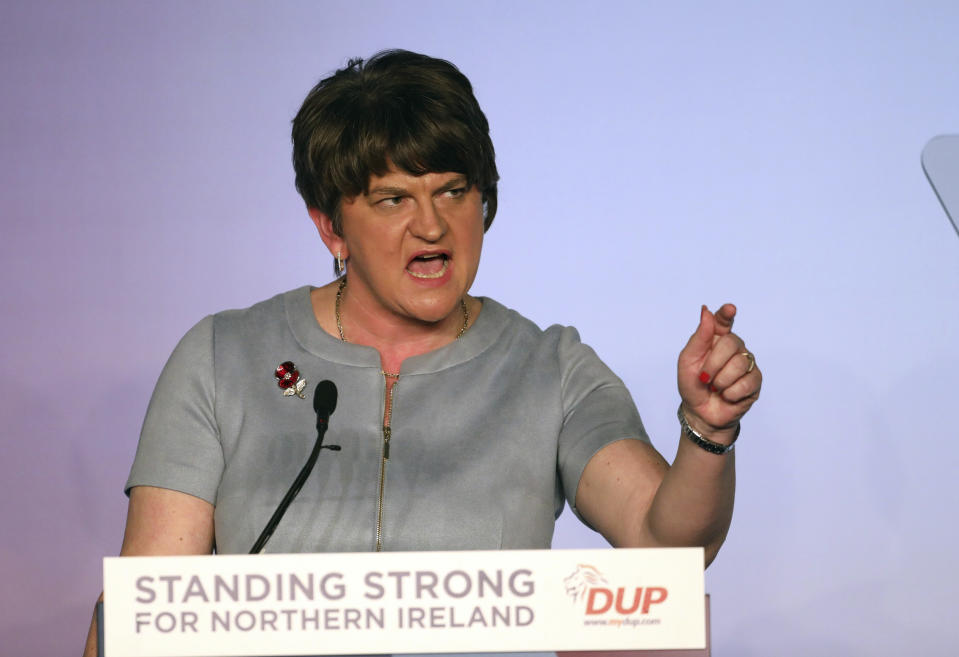Why this general election is important to Northern Ireland's future
This general election could prove very important to the future of Northern Ireland.
Polls point to a big Conservative Party win, which would pave the way for prime minister Boris Johnson's Brexit deal to be passed.
Crucially, the deal would prevent a hard border in Ireland.
Since the 1998 Good Friday Agreement, there has been an open border between the six-county Northern Ireland, which is part of the UK, and the 26 counties of Ireland, which is independent.
It was the European Union’s single market that provided the scaffolding for such an arrangement, which is why the UK's departure from the bloc is problematic for Northern Ireland.
The 1998 agreement ushered in two decades of relative peace and stability in Northern Ireland. In the 30 years prior, clashes between unionists, who want Northern Ireland to remain part of the UK, and republicans, who want the six counties to unite with Ireland, took the lives of more than 3,600 people.
READ MORE: The biggest issue at the heart of Boris Johnson's Brexit deal
If Northern Ireland was to leave the EU’s customs union, some sort of border infrastructure would be necessary to protect the single market. And that, experts warn, could lead to a return of violence in the region.
However, most parties in Northern Ireland oppose Johnson’s deal.
Unionists, such as the Democratic Unionist Party (DUP), fear a weakening of the union with the UK — and argue that the deal would create an economic border in the Irish sea, which separates the island of Ireland from Great Britain.
This is because Northern Ireland, while ostensibly remaining part of the UK's customs union, would be subject to EU customs rules and oversight — necessitating checks on goods at ports on the Irish sea.

The DUP says the deal "drives a coach and horses" through the Good Friday Agreement.
"These proposals are not, in our view, beneficial to the economic wellbeing of Northern Ireland and they undermine the integrity of the [United Kingdom]," the DUP said.
The Ulster Unionist Party, meanwhile, believes that staying in the European Union would be preferable to such a scenario, as do nationalist parties, such as Sinn Féin.
Sinn Féin fears that, because Northern Irish politicians will be given the opportunity to opt out of EU rules every four years, the unionist parties will have a "veto."
READ MORE: Hard border will see ‘return to violence within a week’
Unionists currently have a slim majority in Northern Ireland's Stormont Assembly.
If it's a close election, Northern Ireland MPs could prove decisive in the future direction of Brexit, since the Democratic Unionist Party currently props up the Conservatives in the House of Commons.
Other Northern Irish parties are sick of the DUP's influence, and have taken unprecedented steps to limit the party's power, including unofficial election alliances between Sinn Féin, the Green Party, and the SDLP, another nationalist party.
The parties have agreed not to compete with each other in some constituencies, and they are hoping to unseat the DUP's Emma Little-Pengelly in the Belfast South constituency, and even the party's deputy leader, Nigel Dodds, in Belfast North.
If Johnson's party gets a large majority, however, the influence of every Northern Ireland MP will be diminished — and the Brexit issue will be taken out of their hands.

 Yahoo Finance
Yahoo Finance 
